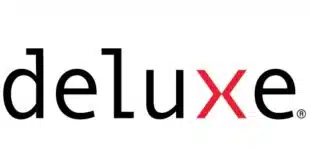Offering a surcharging or cash-discounting program to merchants has obvious revenue benefits to merchants, but they have the potential to grow an independent sales organization’s or acquirer’s bottom line, too.
Such programs enable merchants to cover their costs to accept credit card transactions by adding a fee to the purchase price, as is the case with surcharging, or by offering a discount if the consumer pays with cash.
ISOs and acquirers still get their revenue from processors, which must continue to pass along the interchange to issuers. The uptick is that the revenue often increases.
“Revenues will dramatically increase for ISOs that offer this solution,” says Adil Moussa, principal at Omaha, Neb.-based Adil Consulting, as part of a story appearing in the upcoming May issue of Digital Transactions magazine. “It is a guaranteed 220-plus basis points on an average portfolio for cash discounting,” Moussa says. A basis point is one-hundredth of a percent. “Even after the splits, the ISO would still make 100-plus basis points and that’s without counting any types of other fees that they could charge.”
A revenue boost is not uncommon, says David Leppek, president of Transaction Services, a payments provider also based in Omaha. “For the ISO space, because merchant surcharging requires that the merchant only surcharges the amount that they are in turn charged, and due to the wide range of credit card fees, a 3% or 4% surcharge is typical,” he says. “This is equivalent to pricing the merchants at a 3% or 4% flat rate. So, the ISO can expect a 90-basis point over interchange margin. This is huge in segments where the ISO might otherwise only make 5 five basis points typically.”
There’s also the potential that comes from reduced attrition and having a unique sales pitch. As Moussa says, attrition rates are affected because merchants have less reason to shop ISOs and acquirers on price. The pressure to lead with price, always important to merchants evaluating credit and debit card acceptance services, in a sales pitch often means merchants can easily dismiss a sales agent based on that one element, without learning what else the ISO or acquirer may offer.
“Attrition almost disappears as the competitor who follows us into the merchant’s location is either unable to offer a similar compliant solution, or assumes the statements are somehow incorrect,” Leppek says.
Surcharging or cash discount programs may not suit all merchants, but Leppek suggests it could be viable for entities like business-to-business merchants. “Some might find the practice difficult in a competitive space,” he says.
Currently, ten states ban surcharging, but a case involving the law in one of those states, New York, was recently returned to a federal appeals court for reconsideration after a ruling by the U.S. Supreme Court. The appeals court had earlier upheld the surcharge ban.





